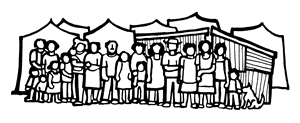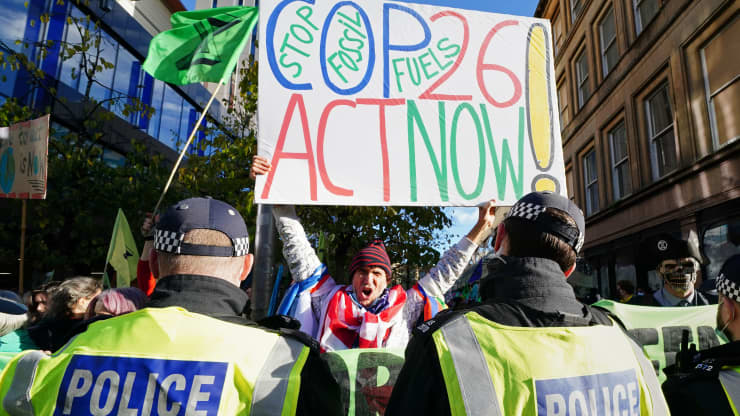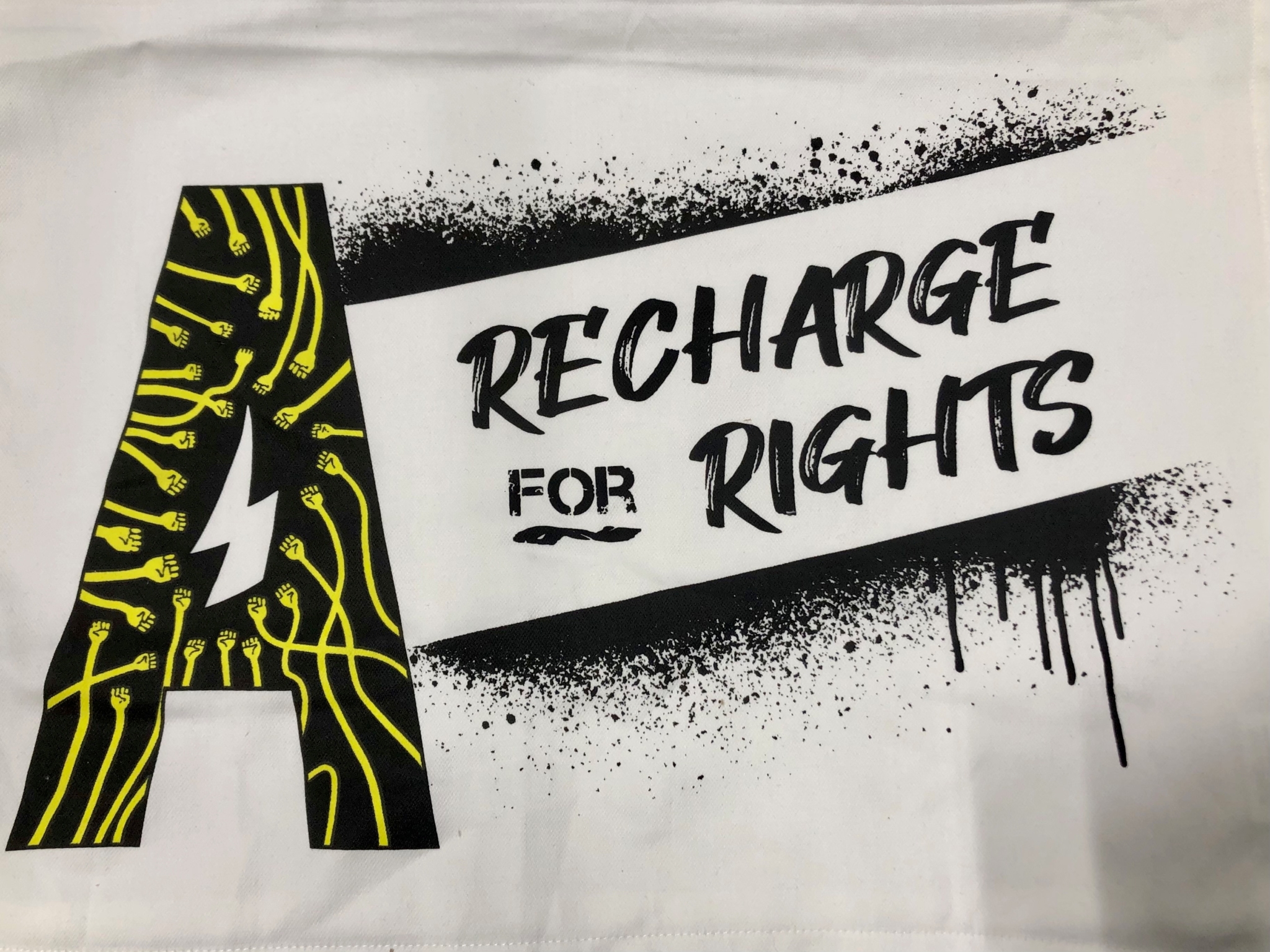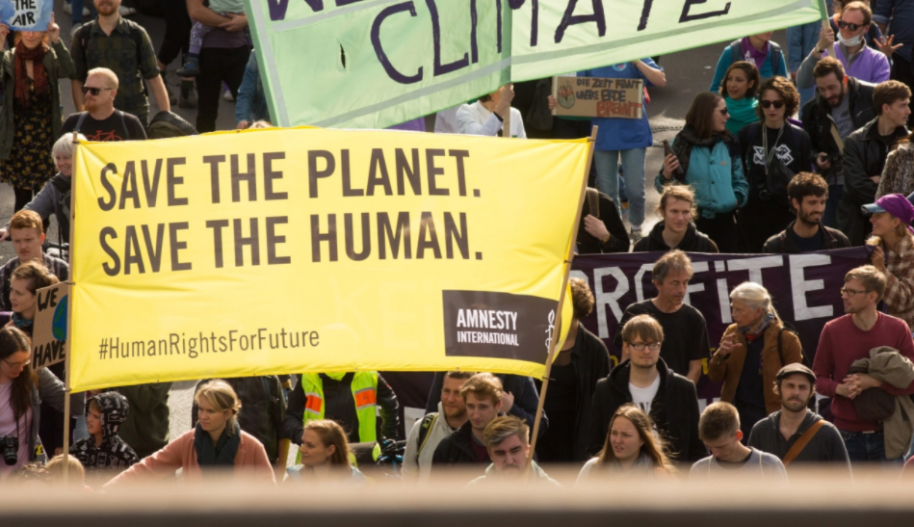Stay hopeful by being organized

If the hit movie, Don’t Look Up, taught us anything, its that organizing ourselves and not leaving it solely to the self-interested and powerful, is humanity’s best chance for survival.
Spoilers ahead! For those who haven’t yet seen it, the film depicts the desperate and sometimes questionable actions of an astronomy professor, his PhD student and their NASA ally to prevent the earth from being destroyed by a ‘planet killer’ sized comet. The ratings-obsessed and corporate-captured President at first downplays the seriousness of the impending disaster but after an unrelated political scandal threatens her leadership, she decides to back the scientists in an effort to improve her polling numbers. However, like mercurial Presidents-past, she soon scrubs her plan to destroy the comet by instead allowing a megalomaniac tech baron to deploy untested technology that would break up and of mine the comet, rendering it harmless and his company spectacularly rich. As expected, his plan utterly fails and humanity is doomed (except for 2000 well-heeled corporate VPs and their families, who make it onto the President’s cyro-chambered spaceship and flee into deep space to find an colonize a new earth in a new solar system). While all of this is taking place, regular folk appear to be equally as ill-equipped and distracted by ‘likes’ as their leaders to do anything to change the outcome. This message is the warning at the centre of the film.
Fortunately, however bleak the message might be, it doesn’t entirely line up with reality.

One of 2021’s parting lessons is that organization, persistence, and belief in people power can bring about change. Some of these victories are outlined in a recent Guardian UK article, which praises the persistence of community groups, shareholders, and students in facing down and beating powerful fossil fuel companies.
There are other reasons to hope, writes Amnesty International’s Climate Policy Advisor, Chiara Ligouri, in the tireless efforts and dedication of climate campaigners from the most climate-affected countries.
“It is also thanks to this large cross-cutting movement that governments of poorer countries are putting their feet down in climate negotiations every year with more strength. The struggle is still long, but the movement is becoming so strong and so loud that it is becoming impossible to ignore its demands.”
We also draw inspiration from the courageous climate defenders of the Americas, like Bernardo Caal Xol, Jani Silva, the Guapinol Water Defenders, Berta Caceres and Chile’s Mujeres Modatima. You can read about their courageous efforts to protect the environment and Amnesty’s campaigns to support them.
As civil society and Indigenous leaders said after the failures in leadership during COP26: now is the time to redouble our efforts, not to give up!
Ways to stay sharp and organized:
Those looking to make an even bigger contribution to climate justice work in 2022 will have a lot of options for sharing your organizing, debating, writing, disrupting and – of course – clever sloganeering skills. Join us for some of the many learning and sharing opportunities coming your way, such as:
- How Climate Groups Can Influence Local Government: Wednesday Jan. 19 at 7 pm join WE-CAN’s on-line Roundtable. With rural, municipal and school board elections set for Oct. 15, 2022, stronger action is needed to support necessary changes at the local government level. Hear from local climate activists who have had success moving local governments and school boards. To register: https://docs.google.com/forms/d/e/1FAIpQLScftm7UOVTIdBenSoiPKnMjqs7onwMKfO9fIWLo-z5MVUhs3A/viewform?usp=sf_link
Food for thought: If your community were to reduce traffic by 25 percent by 2030 (ie within the next 8 years), what would that look like? What would it take to get there? Who would need to be involved in your community? What gaps in bus service, bike and scooter lanes, or walkability would need to be filled in the next 8 years to make this vision a reality? Close your eyes and imagine what that would be like. Does this sound like something you could envision in your community? Let us know!
- Climate Justice Specialized Team webinars: Amnesty’s climate justice specialized team of volunteers hosted its first very successful webinar last November. The 3 next webinars will take place in late February, early May, and September. For more information, please check back here or send an email to Elena: edumitru@amnesty.ca
- Writers’ Corner: on the 15th of every month, we invite you to send a letter to the government of Canada on a climate justice issue. We provide the template and background information and you write the letter. Simple and direct, these letters aim to keep climate justice on the radar of elected officials. Please visit www.amnesty.ca/climate and click on the Writer’s Corner button.
- And remember to order your Energy Transition Dine and Learn Kit for a fun home learning activity! Each kit contains background info, a comic book, a trivia game, a home battery use audit, a delicious bar of Peace by Chocolate, a Recharge for Rights tea towel AND two low-energy use recipes. The kits are *free* and can be ordered via the Vancouver office: vancouver@amnesty.ca.

New Materials on their way!
Get ready for new materials and actions this spring including: a new Battery Score Card (an assessment of how well major technology, automobile and battery manufacturers are addressing human rights in their supply chains); a new comic book and workshop for members on Just Transportation; sharing climate stories from across Canada.













